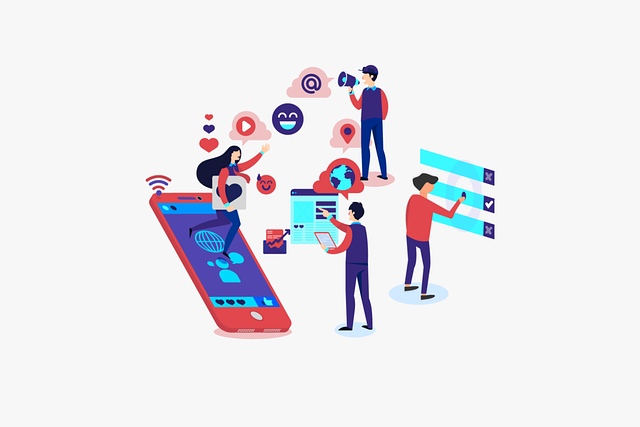Discover your transferable skills with these three steps.
If you are contemplating switching careers, it's essential to recognize any transferable skills which could help you excel in an entirely different industry or job. We will explore how you can identify such transferable abilities as well as offer strategies for using them effectively on your journey towards new ventures.
Understand the Value of Transferable Skills.
Transferable skills are those which are applicable across industries and positions, often called soft or core skills, and highly valued by employers. Such transferable abilities include communication, problem-solving, teamwork, leadership and more. Understanding their importance when considering career changes is vital as it allows you to showcase and demonstrate what value your transferable abilities bring into new areas - by acknowledging and emphasizing them you increase the odds of a successful transition.
Assess Your Existing Skills and Experience.
As you contemplate changing careers, it is necessary to determine your assets. These are your number one key to landing the job you love. Overtime, you have honed your skills from previous years, so take time to evaluate them. What are those that be used in the next career that you want to move in.
Write these abilities down before thinking of ways they could apply in new fields or industries - use relevant experiences or projects you've worked on to understand more fully your abilities; this way you will discover transferrable abilities which could assist with making future career transitions easier!
Determine Your Transferable Skills.
To identify transferable skills that can assist in making a career transition, review both your skills and experiences. Consider previous assignments and duties before creating an inventory of abilities you have developed - these could range from technical abilities such as proficiency with certain tools or software to soft abilities like problem-solving or communication abilities. Once this inventory is created, consider how these abilities could be utilized in different industries or areas by comparing projects that demonstrate your capabilities against those relevant projects or experiences that demonstrate them - this awareness can help identify transferable skills that might prove invaluable when making this transition.
Research Your Target Industry.
Prior to transitioning your career, it is vital that you conduct extensive research on your chosen sector. This will enable you to gain an understanding of the specific skills and qualifications required, roles and responsibilities in this particular industry, job advertisements as well as industry reports and professional networking sites can all provide invaluable information regarding what abilities employers seek in employees; professional employees may even offer their advice and insights as part of this research process. When studying your chosen field closely you may identify transferable skills which make you suitable candidates for career switch.
10 Transferable Skills Examples

Transferable skills are abilities and capabilities which can be utilized across different professions or fields. They often arise through experience in the workplace or education - or perhaps you've discovered new passions! Here are a few transferable abilities which could prove valuable as part of a career change strategy.
1. Communication
Excellent verbal and written communication skills are fundamental in every job, from listening attentively and clearly conveying information, to working effectively with other people and being able to collaborate on tasks together.
2. Problem-Solving
Being able to analyze issues, generate solutions, and then make wise decisions is an essential talent in any profession. Employers appreciate those who can think critically and come up with innovative ways of approaching problems.
3. Leadership
Being a good leader requires being able to motivate and inspire other people; these abilities can be transferred across jobs. Even if you haven't held formal positions of leadership before, you can still exhibit them through actions or abilities to inspire people.
4. Effective Time Management
Effective time management skills are indispensable in any job; employers value employees who prioritize tasks and meet deadlines effectively while remaining organized and efficient.
5. Adaptability
Employers seek candidates who can easily adapt to new circumstances, quickly learn, and be open to change in today's challenging workplace environment. Employers look for candidates with a demonstrated capacity for easily taking on new jobs or fields of practice. Employers look for people who can work together as part of a team environment to meet shared goals and collaborate effectively.
6. Collaboration
Employers recognize the value in being able to work well with others as a crucial aspect of any job position. Don't be too competitive as this will create competition and envy among your peers. Instead, be collaborative. It will help the organization.
7. Analytical skills
Being able to collect and analyze data effectively to make informed choices and address complex issues is an invaluable ability in many fields. Employers look for people who use data-driven decisions and improvements processes as an asset for success in the workplace.
8. Customer Service
Delivering outstanding customer service is vital across a range of roles. This involves listening and meeting customer demands, resolving complaints quickly and forming positive relationships.
9. Technical Abilities
Depending on the industry you're targeting, certain technical skills could be transferrable across many roles - for instance Microsoft Office skills, project management software capabilities and programming languages could all prove useful in many different capacities.
10. Creativity
Employers highly prize those who possess the ability to think creatively, come up with innovative solutions and approach issues from various angles. Those able to bring new insights and innovative approaches are highly desirable employees for any company.
To identify transferable skills that will assist with career transition, focus on those closest to it and highlight them in both your cover letter and resume. Use specific examples that demonstrate these capabilities from past positions or work experiences as evidence of their application.
Conclusion
There you go. I hope you take note of your transferable skills for your next career. It may be hard to look for the job you love for now. But these transferable skills you identify can help you move to the next chapter of your professional career.



